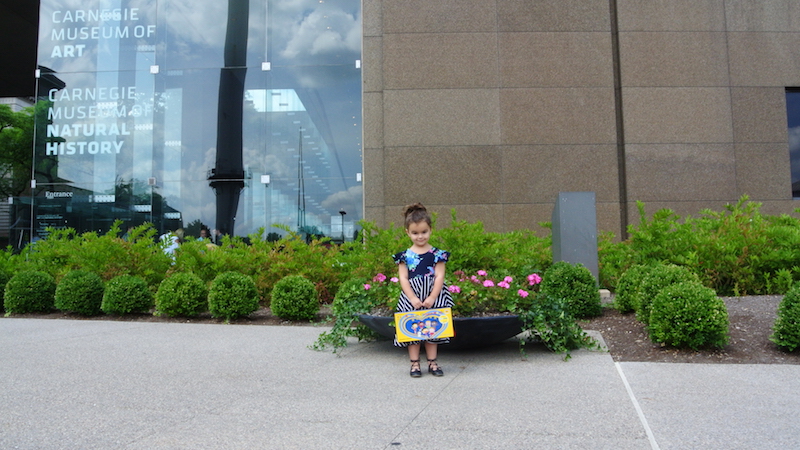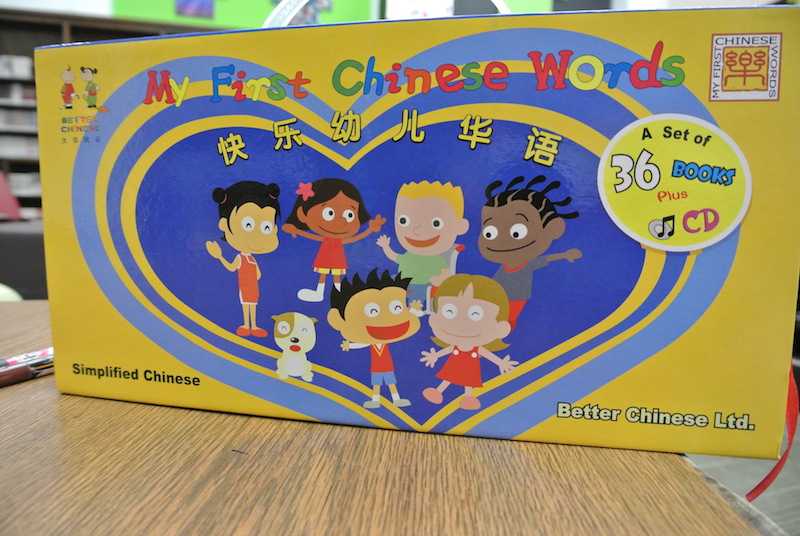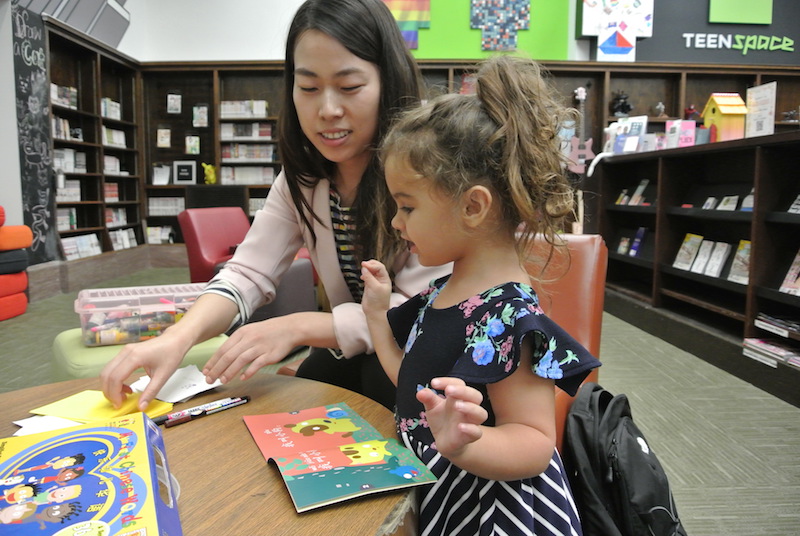Benefits to Learning a Language at an Early Age
Studies show it is easier to become fluent in a second language during childhood rather than waiting until adulthood. Children have a lesser tendency to correct themselves and an ease for hearing and recreating sounds. The earlier a child starts learning a second language, the better. In fact, the preschool years are some of the most important and formative years for a child. The first three years of a child’s life are imperative for skill building, language development and for the foundations of learning. The ideal time to start learning a second language is at the age of 3 or 4, which may sound crazy, but research suggests that as children get older the ability to pick up a second language becomes more difficult.
There are numerous benefits to children learning a second language aside from the obvious challenge to their brains and growth academically. Children who learn a second language have more college and career opportunities, exude greater confidence and creativity, and have a bigger view of the world. As parents who constantly travel, we decided that having our daughter learn a second language early on was important.

Finding an Instructor
I have read about immersion schools and day camps where children are fully immersed into a new culture. Teaching in these schools ranges from exploring local foods, currency, language and daily life experiences as if you are in another country. It sounds like an incredible learning opportunity and one that we would love to expose our daughter to at some point. I’d like to believe that Lucy experiences some of this immersion naturally during our trips abroad, especially when we have the time to slow travel through a location. She enjoys learning the correct way to greet others and say thank you. I am always pleased with her fearless approach to trying new foods and excitement for different modes of transportation. Our hope is that she will soak it all in and while she may not remember everything, hopefully she will find the benefits of these experiences.
Since we are unable to enroll Lucy in an immersion school locally, we looked into language lessons. After a cursory search on the internet, my husband turned to the Thumbtack where he found a local PhD candidate from China who was advertising one-on-one lessons teaching small children Mandarin Chinese. One of the advantages of living in Pittsburgh are the opportunities to interact with institutions like Carnegie Mellon, the University from which Lucy’s instructor is pursuing her doctorate. The rate listed for the lessons was $80/hr and while we did not disagree with this price, our budget and Lucy’s attention span was better suited at $40/half hour. Once we had the rate settled and agreed on a location we were set.

The lessons are scheduled every other week for a short period of time, which means it is imperative that Lucy practices during time apart from her instructor. We were advised to purchase My First Chinese Words from Amazon as support curriculum. Kyle and I are also attempting to learn the language (though we leave her with her instructor for one-on-one lessons) so that we can practice with her and help her apply her skills in everyday situations. It is wonderful to see her using her knowledge of a second language in different settings.
Her favorite restaurant, a local hotspot for Xiao Long Bao, quickly became a new opportunity for her to attempt using her recently acquired language skills with native speakers other than her instructor. As hectic schedules come into play it can be difficult to keep her lessons consistent but for Lucy’s sake it is important that we do our best to keep her interest level high and help her grow her comprehension.

Connecting Language with Travel Experiences
Whether watching a show on TV, a trip to a restaurant or traveling abroad, there are multiple opportunities to connect a new language with an experience. Visiting another country forces this connection to happen naturally during typical activities such as shopping and eating. Look at these interactions with locals as opportunities for you and your child to practice the language with a native speaker, to become acquainted with the local currency and to learn more about the culture around you.

When Lucy hears a different language she starts to connect them to different places. On a recent trip to Thailand, she was able to discern the language spoken was different to her native language and asked
“Mama, are they speaking Spanish or Mandarin?”
Even though neither of were correct, she identified the difference and started to familiarize herself with Thai. Hearing that difference is something she may or may not have recognized before she started learning a second language, but for three years old, I was proud that she was listening and she was curious.

Have you had any experiences with children learning a second language? How have you been able to connect those experiences with travel?




Chinese mandarin, cantonese, not to mention different dialects…. oh and the kanji…. phew….
There’s an extensive body of educational research that supports the premise learning multiple languages expands cognitive skills. In my experience, it has only invited constant criticism. Where I live people complain about my heavy accent, listening to music from around the world and pronouncing names in the original language it comes from. (:
More power to you for learning a second (or more) language yourself. I’d rather be able to communicate with more people, even if they complain about my accent.
Where you’ll find the challenge I think is having Lucy keep the good habits going after she starts school. I say this as someone whose parents tried really hard to get me to learn our native tongue – I actually learned Tamil before English, as we were in India for an entire summer while I was learning to talk. The problem is, once I went to school, I had nobody there to practice with, so I lost interest. Going to India frequently enough to help was really difficult 30 years ago, so perhaps you’ll have more luck with Lucy. I think you’re doing the right things by focusing on one or two languages, getting her lessons, and traveling frequently enough to places where she can practice. Just know it gets harder as Lucy gets involved in more activities that compete for her time.
FWIW, between my wife and I and my mom, we know three languages passably in our household, and we fully intend to expose Ashok to all of them. If nothing else, it’s fun to teach him words in different languages. Even if we aren’t able to get him to use any of them, I’m hoping the cognitive skills developed by learning benefits him down the road.
MeanMeosh- I think you are exactly right. It will be a challenge but I am hoping that we will be able to continue good habits and practice often. I have three nephews and one niece who spoke English as their second language and after just a couple of years in the US, the younger two have almost completely forgotten their native language as they did not continue to use it while they were learning English.
I think even exposing a child to other languages as you say with Ashok definitely has cognitive benefits.
Growing up I learned German from my parents and I definitely agree with you, learning a language as a child is much easier than as an adult. It was easier for me since I spoke German with my parents most of the time and was able to learn from them, but I think that if your daughter sticks to it, she will learn it fast. I recommend trying to speak with her every so often in Mandarin, even if you aren’t fully fluent. It will keep her interested in the language. TV shows, books are also great ways as well to learn a language.
We will do our best, though it has been a struggle for us to keep up. Using books and TV shows are a great idea, we might add movies to the mix too with English subtitles so she can hear the sounds, pick up on occasional words, but we can explain the plot if need be to keep her interested.